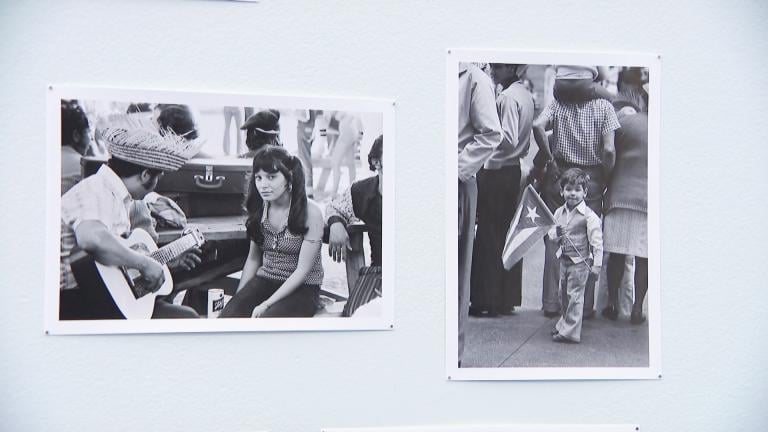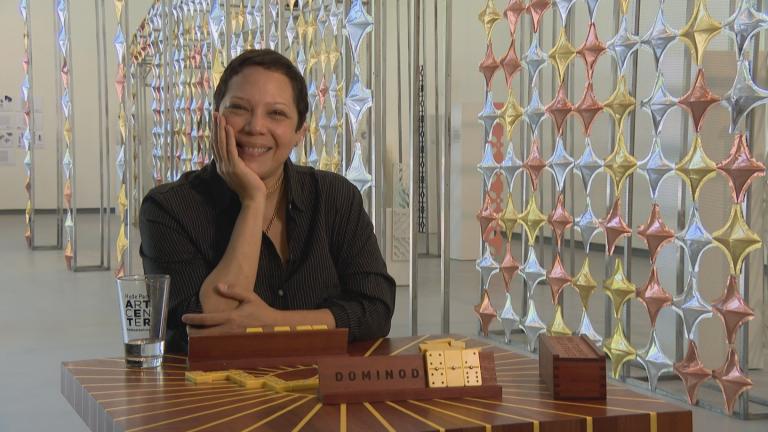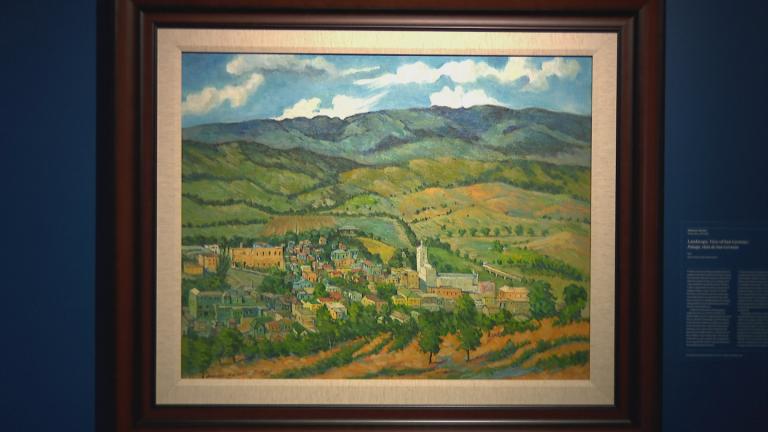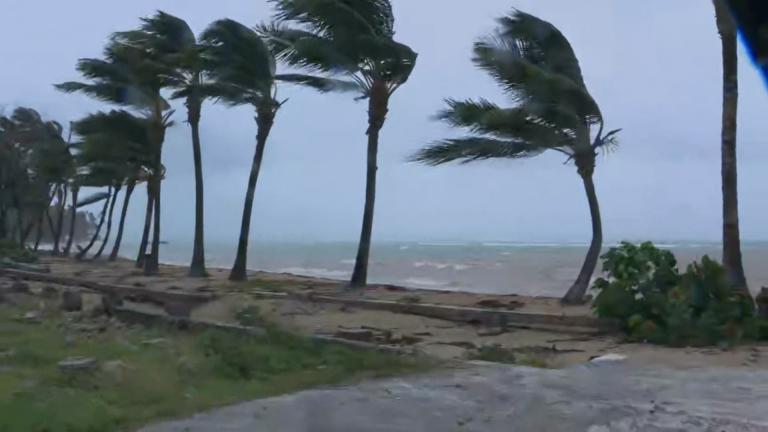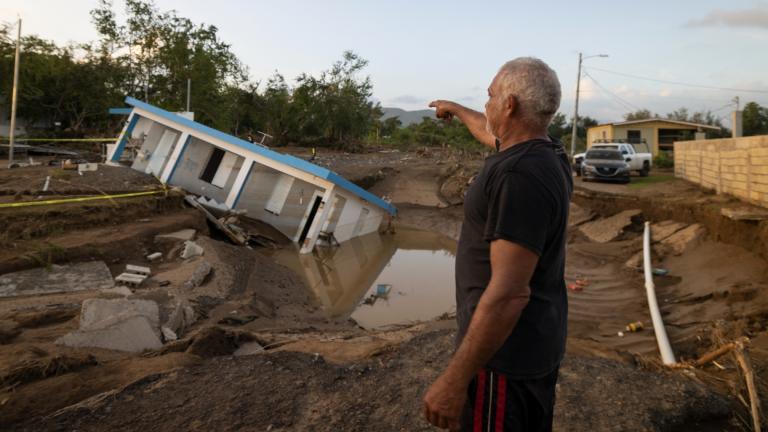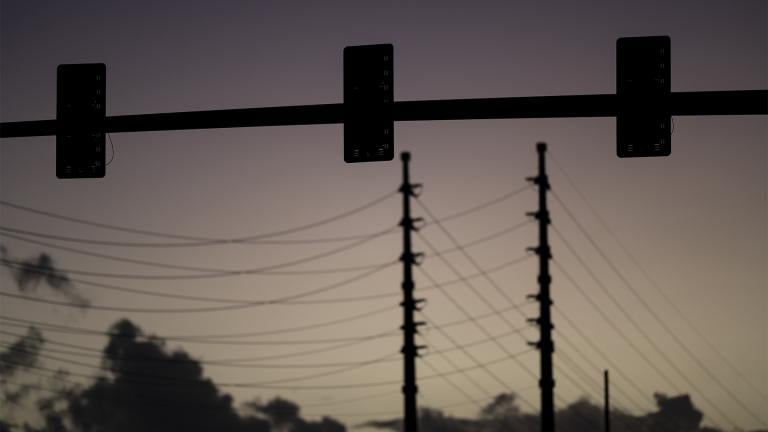As Puerto Rico is battling the devastation caused by Hurricane Fiona, Chicago-area residents of Puerto Rican descent say the storm calls attention to past wrongs and opportunities for change.
Sachayra Cintron was born and raised in Chicago before moving to Puerto Rico in 2010. But in 2017, she and her children moved back just before Hurricane Maria hit.
“We were actually living without water and light for a month already because of the Tropical Storm Irma,” she said. “And then we saw how bad Hurricane Maria was getting, so my mom begged for me to come back to Chicago.”
Hurricane Maria was a Category 4 storm that wrecked utter havoc on the island archipelago, a commonwealth that’s an unincorporated U.S. territory. Thousands died and power was knocked out for weeks, if not months.
“Five years later we have thousands of families that live in houses that still have blue tarps on them after Hurricane Maria. The five-year anniversary of Hurricane Maria’s tomorrow and we still do not have an infrastructure in which Puerto Rico can survive even a Category 1,” said Jessie Fuentes, co-chair of The Puerto Rican Agenda of Chicago.
Hurricane Fiona, a Category 1 storm, caused mudslides and massive flooding as it whipped through Puerto Rico and again left the island without power.
“Not having water in Puerto Rico means no clean water. Not having power in Puerto Rico means the individuals do not get to store and keep their medicine well,” Fuentes said. “Not having power in Puerto Rico means that the people in hospitals on respirators or attached to any type of treatment that requires power cannot get that treatment.”
Fuentes said the situation, both five years ago and now, amplifies how Puerto Rico does not get the same treatment in climate emergencies as Texas and other southern states.
“Hurricane Maria exposed the consequences of colonialism. I think that Hurricane Maria exposed the lack of resources that the government was willing to give an island like Puerto Rico,” Fuentes said. “And I think that Hurricane Maria raised consciousness, not just on the island but across the entire diaspora.”
That momentum has in part manifested in efforts and legislation to move Puerto Rico to a point of self-determination.
What that looks like, Fuentes said, is for Puerto Ricans to decide, be it U.S. statehood, keeping its current status or becoming an independent nation.
In the past five years, the electric grid has been privatized, but is troubled.
In other ways, Fuentes said things are going better following Fiona than in 2017, when then President Donald Trump tossed paper towels to Puerto Ricans following the storm.
President Joe Biden on Sunday approved an emergency declaration, which activates the Federal Emergency Management Agency to coordinate and move on recovery efforts.
The Puerto Rican Agenda, which mobilized after Maria, is ready to jump into action again.
State Sen. Cristina Pacione-Zayas, D-Chicago, said five years ago, the coalition swiftly raised $70,000.
“We quickly translated that into pallets of emergency supplies, because at that point money would not make sense – we needed to get supplies over there,” she said. “We were then able to leverage our relationships socially and politically to be able to secure a plane from United and get that plane out five days after the hurricane.”
Pacione-Zayas said action can take different forms.
“Some people need to understand first and foremost that Puerto Rico right now is a colony of the United States. Some people may not be aware of that, and how did that relationship come about and how did that bring it to the point that it’s at today,” she said. “Some people are still grappling with ‘is climate change real?’ and here is an example that most indeed it is. And then some folks really want something more concrete.”
Concrete could take the form of giving cold-hard cash, but she cautions that this should be done without a savior mentality — rather directing it toward groups with local connections, like those the Puerto Rican Agenda of Chicago has formed.
Gov. J.B. Pritzker on Monday offered a statement with no direct financial aid, but a promise that Illinois will offer “any and all necessary support” to victims.
Illinois is not in the business of turning away those in need, and we will continue to welcome these travelers and any Puerto Rican climate refugees seeking a safe place to land with all our available resources” the statement said.
Both Pacione-Zayas and Cintron said their friends and family in Puerto Rico are safe.
“I think about Puerto Rico every day but I am here and I’m actually going to be opening up my business here – Puerto Rican owned, and Puerto Rican related,” Cintron said.
She plans to open her authentic Puerto Rican coffee shop and café in the Paseo Boricua section of Humboldt Park, on Division Street, by the end of September.
Members of Chicago’s Puerto Rican community are scheduled to hold a Tuesday morning press conference outlining further actions in the wake of the storm.
Follow Amanda Vinicky on Twitter: @AmandaVinicky

